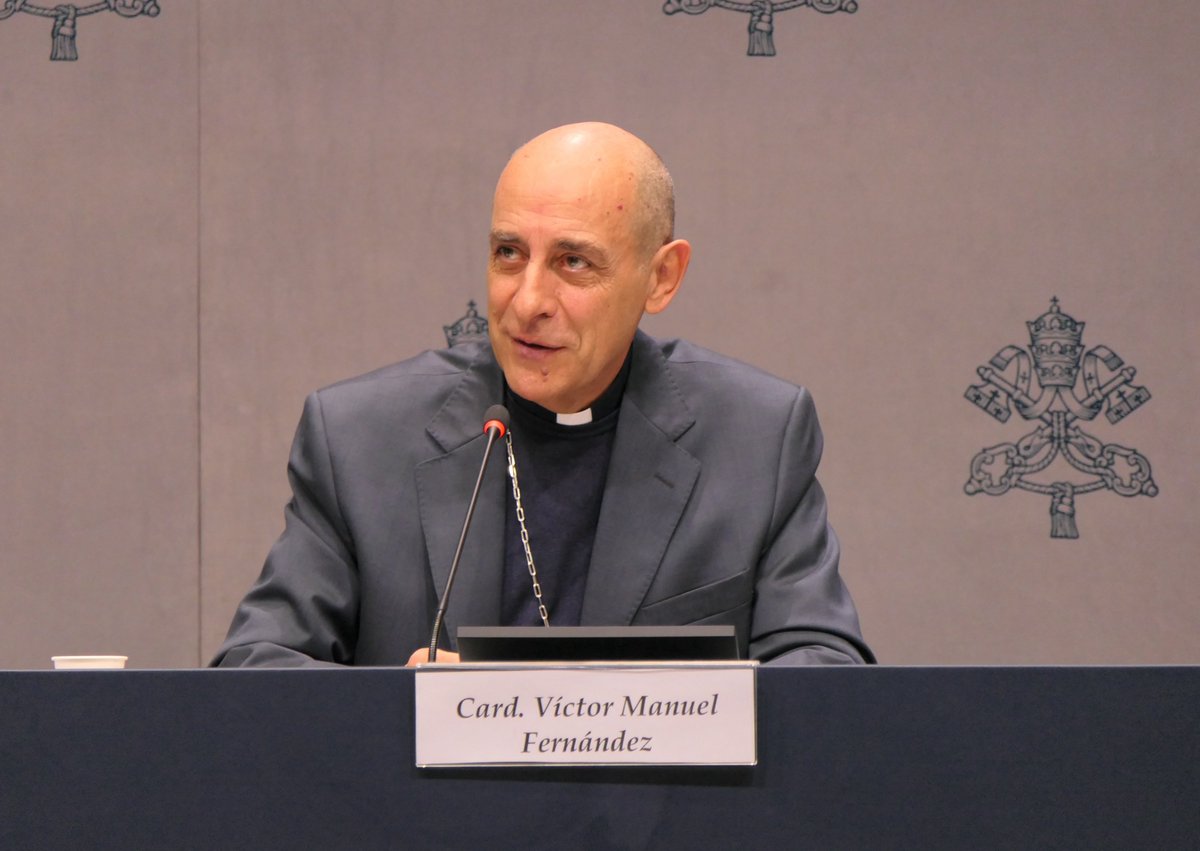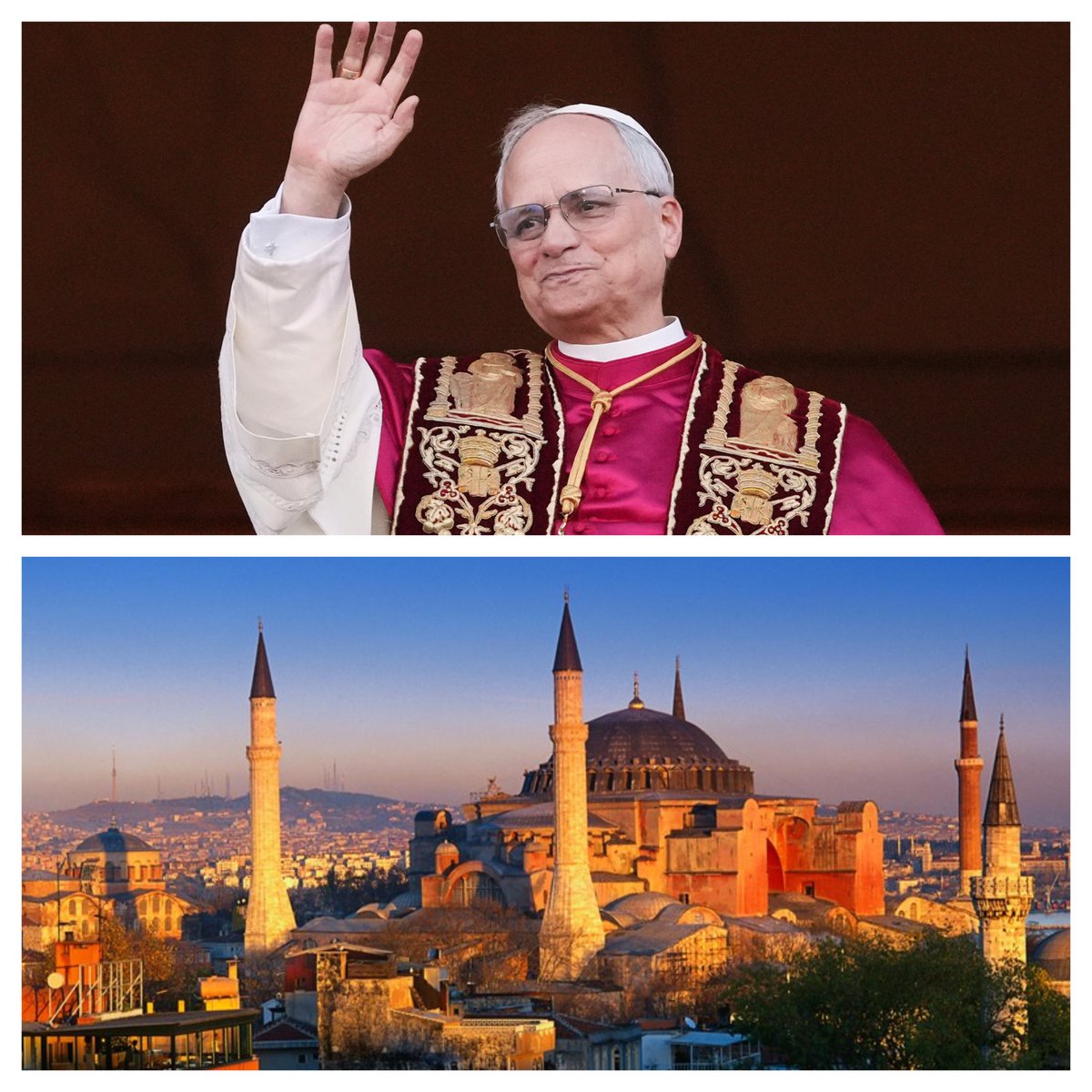Move over, Coronavirus!
Heresy: Francis claims God’s Love “Asks for Nothing in Return”

Even the infamous Coronavirus cannot stop Jorge Bergoglio from spreading heresy.
Feeling “caged” at yesterday’s Angelus, the Argentinian pseudo-pope read his catechesis from inside the Apostolic Palace, which was broadcast live to the few people loosely gathered outside in St. Peter’s Square. The video can be watched here.
Preaching on the Transfiguration, which was the Gospel reading for the day, “Pope” Francis said:
It should be emphasized that, in the midst of the group of the Twelve, Jesus chooses to take Peter, James and John with Him to [the] Mount. He reserves for them the privilege of witnessing the Transfiguration. Yet Peter, in the hour of trial, will deny Him; and the two brothers, James and John, will ask to have the first places in His Kingdom (Mt 20,20-23). However, Jesus does not choose according to our criteria, but according to His plan of love. It is a free, unconditional choice, a free initiative, a divine friendship that asks for nothing in return. And as He called those three disciples, today also, He calls some to be close to him, in order to bear witness. Being witnesses is a gift that we have not deserved: we feel inadequate, but we cannot hold back with our inability being our excuse.
(Antipope Francis, Angelus Address, Zenit, Mar. 8, 2020; underlining added.)
Yes, you read that right: According to Mr. Bergoglio, God “asks for nothing in return” for His love, His graces, His friendship.
But is that true? Let’s see…
“Not every one that saith to me, Lord, Lord, shall enter into the kingdom of heaven: but he that doth the will of my Father who is in heaven, he shall enter into the kingdom of heaven. Many will say to me in that day: Lord, Lord, have not we prophesied in thy name, and cast out devils in thy name, and done many miracles in thy name? And then will I profess unto them, I never knew you: depart from me, you that work iniquity.” (Mt 7:21-23)
“And why call you me, Lord, Lord; and do not the things which I say?” (Lk 6:46)
“For I tell you, that unless your justice abound more than that of the scribes and Pharisees, you shall not enter into the kingdom of heaven.” (Mt 5:20)
“But he that had received the one talent, came and said: Lord, I know that thou art a hard man; thou reapest where thou hast not sown, and gatherest where thou hast not strewed. And being afraid I went and hid thy talent in the earth: behold here thou hast that which is thine. And his lord answering, said to him: Wicked and slothful servant, thou knewest that I reap where I sow not, and gather where I have not strewed: Thou oughtest therefore to have committed my money to the bankers, and at my coming I should have received my own with usury. Take ye away therefore the talent from him, and give it to him that hath ten talents. For to every one that hath shall be given, and he shall abound: but from him that hath not, that also which he seemeth to have shall be taken away. And the unprofitable servant cast ye out into the exterior darkness. There shall be weeping and gnashing of teeth.” (Mt 25:24-30)
“Master, which is the greatest commandment in the law? Jesus said to him: Thou shalt love the Lord thy God with thy whole heart, and with thy whole soul, and with thy whole mind. This is the greatest and the first commandment.” (Mt 22:36-38)
“If any man come to me, and hate not his father, and mother, and wife, and children, and brethren, and sisters, yea and his own life also, he cannot be my disciple. And whosoever doth not carry his cross and come after me, cannot be my disciple.” (Lk 14:26-27)
“But I say to you, Love your enemies: do good to them that hate you: and pray for them that persecute and calumniate you: That you may be the children of your Father who is in heaven, who maketh his sun to rise upon the good, and bad, and raineth upon the just and the unjust. For if you love them that love you, what reward shall you have? do not even the publicans this? And if you salute your brethren only, what do you more? do not also the heathens this? Be you therefore perfect, as also your heavenly Father is perfect.” (Mt 5:44-48)
Since Francis’ teaching is in direct contradiction to Divine Revelation, it is therefore heretical.
Consulting the true Popes of the past, we naturally find them teaching the true Catholic position:
But to all these duties, more especially to that fruitful Consecration which was in a manner confirmed by the sacred solemnity of Christ the King, something else must needs be added, and it is concerning this that it is our pleasure to speak with you more at length, Venerable Brethren, on the present occasion: we mean that duty of honorable satisfaction or reparation which must be rendered to the Most Sacred Heart of Jesus. For if the first and foremost thing in Consecration is this, that the creature’s love should be given in return for the love of the Creator, another thing follows from this at once, namely that to the same uncreated Love, if so be it has been neglected by forgetfulness or violated by offense, some sort of compensation must be rendered for the injury, and this debt is commonly called by the name of reparation.
(Pope Pius XI, Encyclical Miserentissimus Redemptor, n. 6; underlining added.)
The gift of faith, which through the goodness of God, is accompanied by an incomparable abundance of blessings in the soul of the Christian believer, clearly requires the unceasing homage of a grateful heart to the divine Author of this gift.
Indeed, it is faith that allows us to draw near to the hidden mysteries of the divine life; it is faith that encourages us to hope for everlasting happiness; it is faith that strengthens and consolidates the unity of the Christian society in this transitory life, according to the Apostle: “One Lord, one faith, one Baptism.” It is chiefly by reason of this divine gift that our grateful hearts of their own accord pour forth this testimony: “What shall I render to the Lord for all that he hath rendered unto me?”
In return for so divine a gift as this, after the due submission of his mind, what can a man do that will be more acceptable to God than to carry far and wide among his fellowmen the torch of truth that Christ brought to Us? By their zeal in promoting the sacred missionary efforts of the Church, a zeal that generously feeds the fire of Christian charity, men, ever mindful of the gift of faith, may in some way make a return to Almighty God; by so doing and imparting to others according to their ability the gift of the faith that is theirs, they are visibly manifesting their gratitude to the Heavenly Father.
(Pope Pius XII, Encyclical Fidei Donum, nn. 1-3; underlining added.)
These beautiful quotes speak for themselves.
Bergoglio’s latest heretical utterance is reminiscent of Lutheranism, one of his favorite religions, which teaches the “Faith Alone” heresy (Sola Fides). The Council of Trent, condemning the errors of Martin Luther and the Protestant Reformation, has some relevant canons on this:
Can. 20. If anyone shall say that a man who is justified and ever so perfect is not bound to observe the commandments of God and the Church, but only to believe, as if indeed the Gospel were a mere absolute promise of eternal life, without the condition of observation of the commandments: let him be anathema [cf. n. 804].
Can. 21. If anyone shall say that Christ Jesus has been given by God to men as a Redeemer in whom they should trust, and not also as a legislator, whom they should obey: let him be anathema.
(Council of Trent, Session VI, Canons on Justification; Denz. 830-831)
Francis’ admiration for Martin Luther and his false religion is no secret. We need but recall his profession of Consubstantiation, his denial of the Catholic dogma on merit, and the fact that he has led a Lutheran prayer service in the past. Needless to say, he adheres to the Novus Ordo idea that Lutherans are members of the Mystical Body of Jesus Christ.
Bergoglio claiming that God asks nothing of us in return for His love is not new. In the past he has said more or less the same thing on a few occasions, such as the following (all underlining added):
“Such love [as God has shown us] cannot go unanswered. Even though offered unconditionally, asking nothing in return, it so sets hearts on fire that all who experience it are led to love back, despite their limitations and sins.” (Message for First World Day of the Poor, Nov. 19, 2017)
“In mercy, we find proof of how God loves us. He gives his entire self, always, freely, asking nothing in return. He comes to our aid whenever we call upon him.” (Bull Misericordiae Vultus, n. 14)
“God asks for nothing in return but ‘love and faithfulness,’ the pope said. ‘Salvation isn’t bought; you simply enter the banquet.'” (Crux report on Francis’ homily of Nov. 7, 2017)
As always, Francis doesn’t mind contradicting himself with his heresies (see the last quote above), modifying them a bit as he goes along, at times affirming one thing that is later denied, or speaking with deliberate ambiguity so that those who are disposed accordingly will take heresy from what he says, while others will appear to find sufficient reason to explain away his denial of orthodoxy.
This is an old tactic, condemned by Pope Pius VI in 1794, who identified it as an
erroneous pretext that the seemingly shocking affirmations in one place are further developed along orthodox lines in other places, and even in yet other places corrected; as if allowing for the possibility of either affirming or denying the statement, or of leaving it up to the personal inclinations of the individual – such has always been the fraudulent and daring method used by innovators to establish error. It allows for both the possibility of promoting error and of excusing it.
(Pope Pius VI, Apostolic Constitution Auctorem Fidei, preamble)
So, while the Novus Ordo Sect and the government in Italy are taking draconian measures to stop the spread of COVID-19, Francis is busy doing what he does best: infecting souls with heresy — and nobody bats an eye.
Guess where the greater danger lies.
Image source: YouTube (screenshot)
License: fair use





No Comments
Be the first to start a conversation